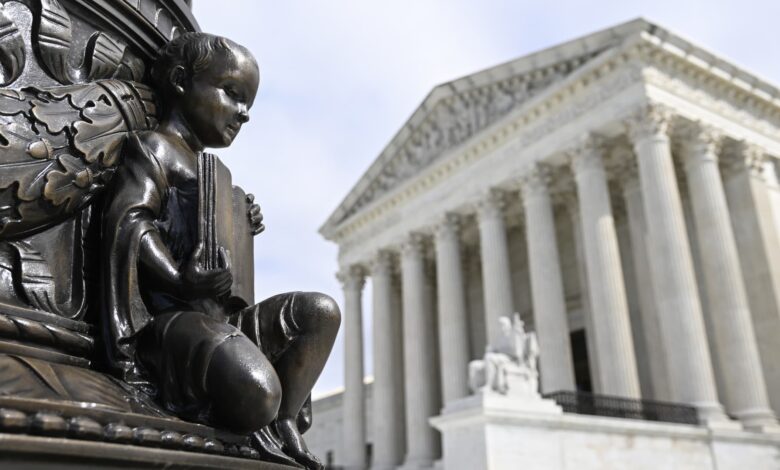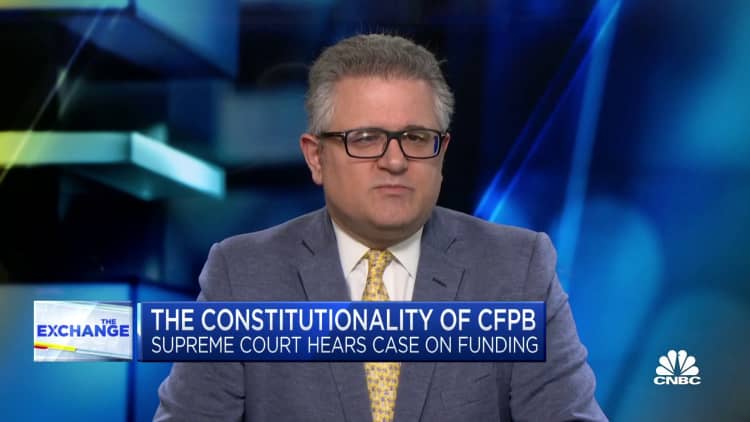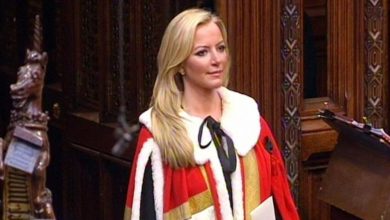Supreme Court tax case could have sweeping federal policy effects

The Supreme Court in Washington, D.C.
Celal Gunes | Anadolu Agency | Getty Images
As the Supreme Court starts a new term, experts are closely watching a case that could have sweeping effects on the U.S. tax code, including corporate revenue and future wealth tax proposals.
This summer, the high court agreed to hear Moore v. United States, a case involving a Washington couple with a controlling interest — more than 10% investment — in KisanKraft, a profitable India-based farming corporation.
The plaintiffs are fighting taxes on earnings that weren’t distributed to them by arguing about the definition of income, which could have broader implications, according to policy experts.
“This could have the biggest fiscal policy effects of any court decision in the modern era,” said Matt Gardner, a senior fellow at the Institute on Taxation and Economic Policy, who recently co-authored a report on the case.
More from Personal Finance:
The job market is strong — but workers don’t think so
House Republicans push IRS for answers ERC pause
Biden cancels $9 billion in student debt for 125,000 borrowers
The case challenges a levy, known as “deemed repatriation,” enacted via the Republicans’ 2017 tax overhaul. Designed as a transition tax, the legislation required a one-time levy on earnings and profits accumulated in foreign entities after 1986.
While the 16th Amendment outlines the legal definition of income, the Moore case questions whether individuals must “realize” or receive profits before incurring taxes. It’s an issue that has been raised during past federal billionaire tax debates and could affect future proposals.
Ruling could affect pass-through businesses
Depending on how the court decides this case, there could be either small ripples or a major effect on the tax code, according to Daniel Bunn, president and CEO of the Tax Foundation, who recently wrote about the topic.
If the court decides the Moores incurred a tax on unrealized income and says the levy is unconstitutional, it could affect the future taxation of so-called pass-through entities, such as partnerships, limited liability corporations and S-corporations, he said.

“You’ve got to pay attention to the way the rules are going to impact your business, especially if you’re doing things in a cross-border context,” Bunn said.
There’s also the potential for a “substantial impact” on federal revenue, which could influence future tax policy, Bunn said. If deemed repatriation were fully struck down for corporate and noncorporate taxpayers, the Tax Foundation estimates a $346 billion federal revenue reduction over the next decade.
However, with a decision not expected until 2024, it’s difficult to predict how the Supreme Court may rule on this case. “There’s a lot of uncertainty about the scope of this thing,” Gardner added.




